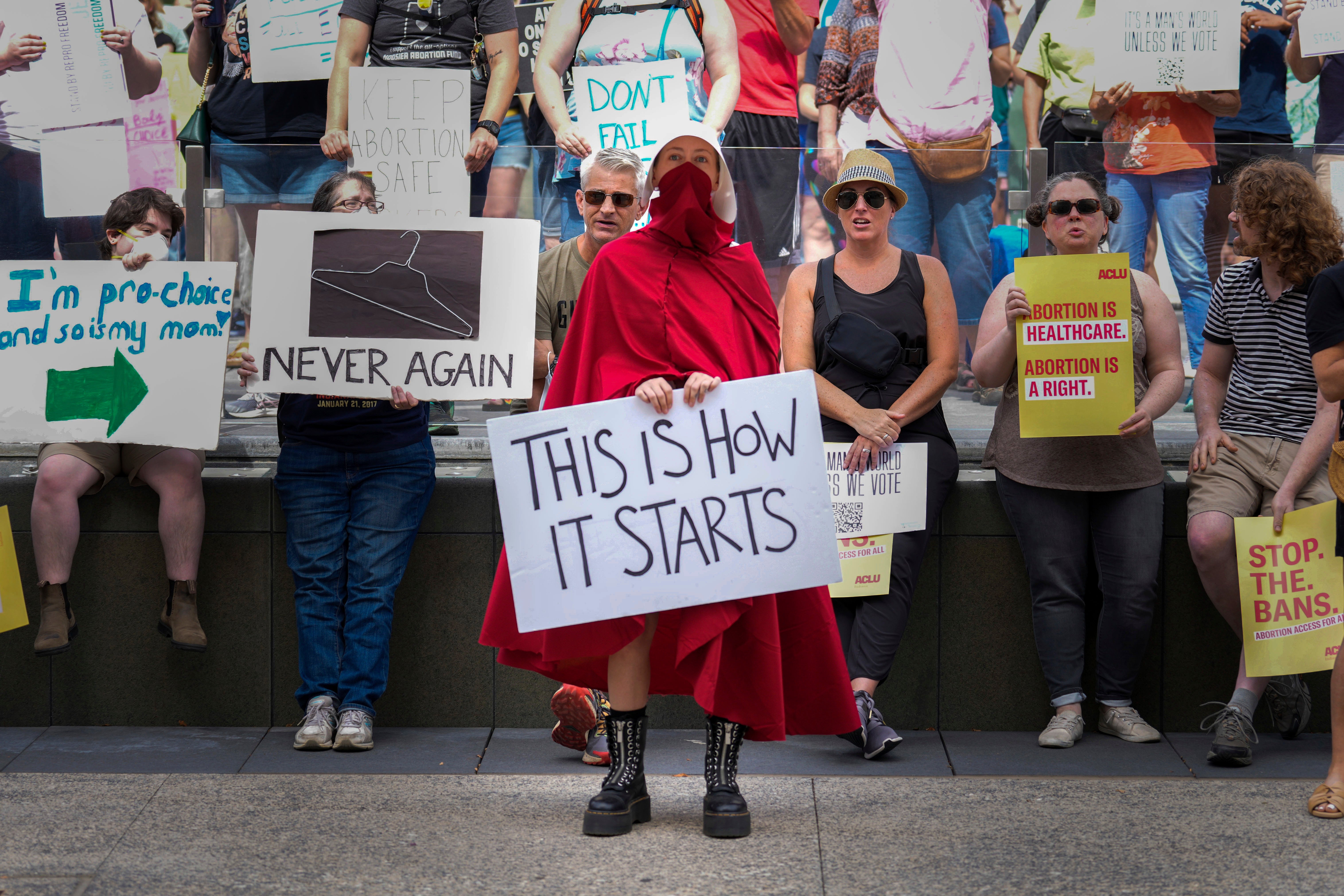The anti-abortion argument that tempted even British politicians
Any British Conservative who thinks they are being clever by invoking states’ rights on abortion probably doesn’t know their history, and certainly hasn’t thought about the future, argues Holly Baxter

When Roe v Wade, the ruling that made abortion federally legal for women in the United States, was overturned a few weeks ago by a newly ultra-conservative Supreme Court, I wasn’t surprised. Political reporters had told me to expect the decision for weeks. What I was surprised by, naively, was the British response. I had assumed that the country of my birth would be uniformly horrified by this Gilead-esque striking down of women’s rights. I thought that even Conservative MPs – barring perhaps Jacob Rees-Mogg – might want to posture about how enlightened they are in comparison with Supreme Court justices like the Clarence Thomases of this world.
For the most part, of course, British politicians did sing from this hymn sheet. But some did not. Conservative MP Danny Kruger – whose mother, Prue Leith, has spoken about having an illegal abortion when she couldn’t access one legally – stood up in parliament to say that women don’t have the “absolute right to bodily autonomy” and shouldn’t expect to. “I don’t understand why we are lecturing the United States on a judgment to return the power of decision over this political question to the states, to democratic decision-makers, rather than leaving it in the hands of the courts,” he said.
Kruger was echoing the well-worn “states’ rights” argument that bad-faith conservatives in the US often like to use. We’re not banning abortion or seeking to ban gay marriage, goes the argument; we’re just returning the decisions to the states themselves. Somehow – despite gerrymandering and a system that assigns a disproportionate number of representatives to sparsely populated, rural areas over densely populated, urban ones – that’s “more democratic”. What’s the problem with that, eh?
Subscribe to Independent Premium to bookmark this article
Want to bookmark your favourite articles and stories to read or reference later? Start your Independent Premium subscription today.
Join our commenting forum
Join thought-provoking conversations, follow other Independent readers and see their replies